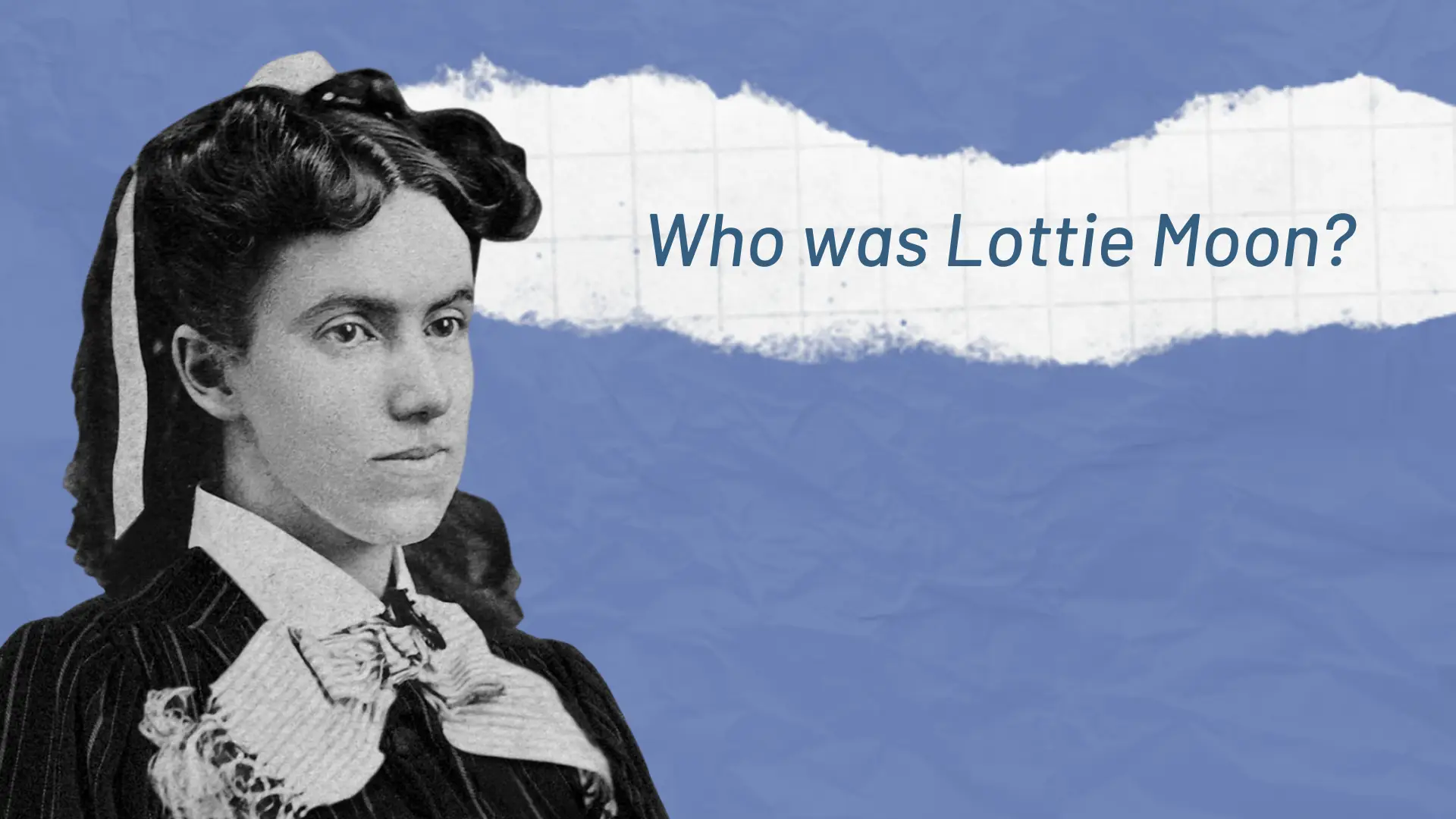Lottie Moon—the namesake of Southern Baptists’ international missions offering—has become a legend.
But in her time, Lottie was anything but an untouchable hero. In fact, she was like today’s missionaries. She labored
tirelessly so her people group could know Jesus.
Well over 100 years ago, a single missionary named Lottie Moon, while serving in China, began writing letters challenging the American church to send and support more workers to
go there. After her death on the field, her challenge was heeded in the formalization of an offering in her name. Even if you’re not a Southern Baptist who has given to the Lottie Moon Christmas Offering, her life is a reminder of why we must give to send and support missionaries serving among unreached peoples in unreached places.
Born Charlotte Digges Moon, December 12, 1840, in Albemarle County, Virginia, Lottie rebelled against Christianity until she was in college. In December 1858, she dedicated her life to Christ and was baptized at First Baptist Church, Charlottesville, Virginia.
Lottie attended Albemarle Female Institute, female counterpart to the University of Virginia. In 1861, she was one of the first women in the South to receive a master’s degree. She stayed close to home during the Civil War but eventually taught school in Kentucky, Georgia and Virginia.
When she set sail for China, Lottie was 32 years old. She had turned down a marriage proposal and left her job, home and family to follow God’s lead. Her path wasn’t typical for an educated woman from a wealthy family. God had gripped her with the Chinese peoples’ need for a Savior.
For 39 years Lottie labored, chiefly in Tengchow and P’ingtu. People feared and rejected her, but she refused to leave. The aroma of fresh-baked cookies drew people to her house. She adopted traditional Chinese dress, and she learned China’s language and customs. Lottie didn’t just serve the people of China; she identified with them. Many eventually accepted her. And some accepted her Savior.
In 1918, Woman’s Missionary Union (WMU) named the annual Christmas offering for international missions after the woman who had urged them to start it.
This article was written and published by the IMB in their Global Impact Guide that you can download here.

